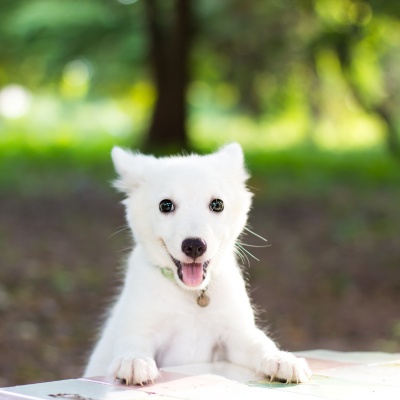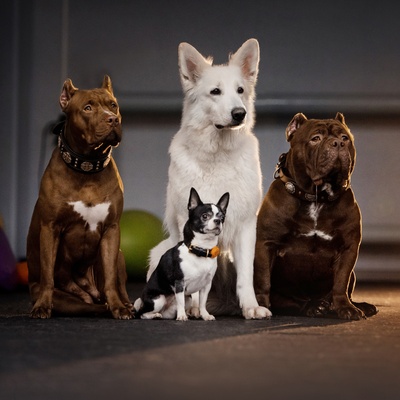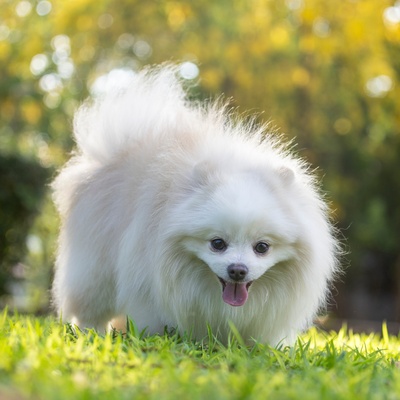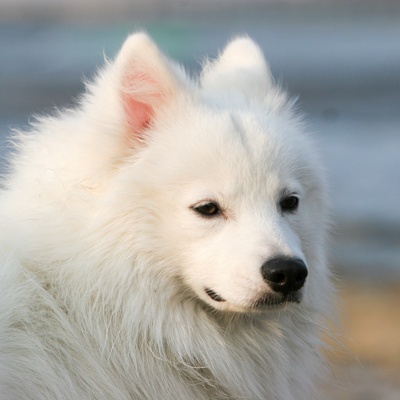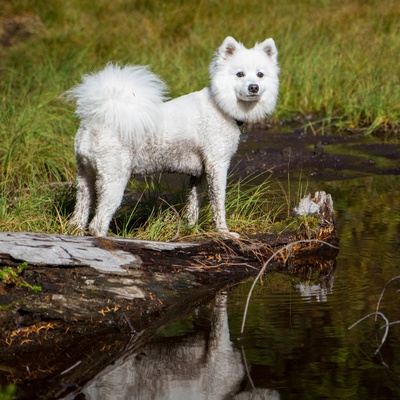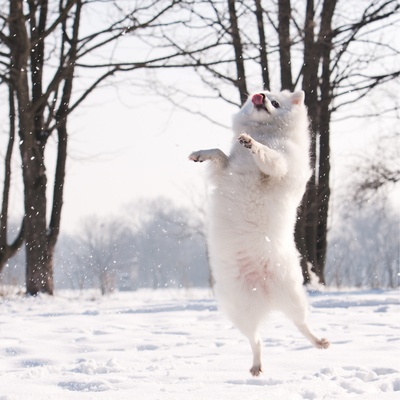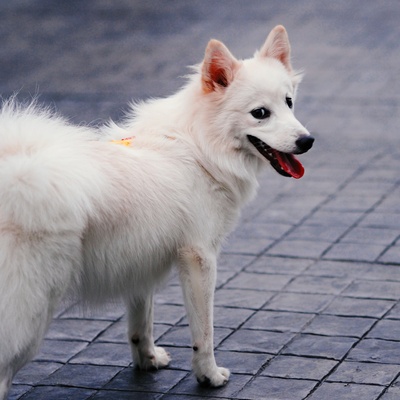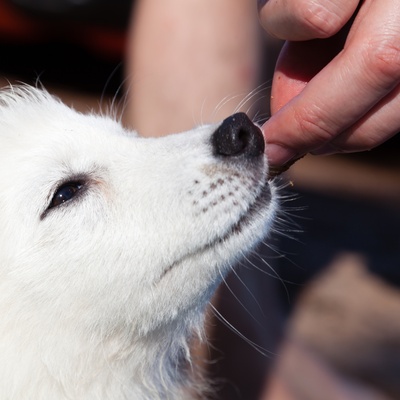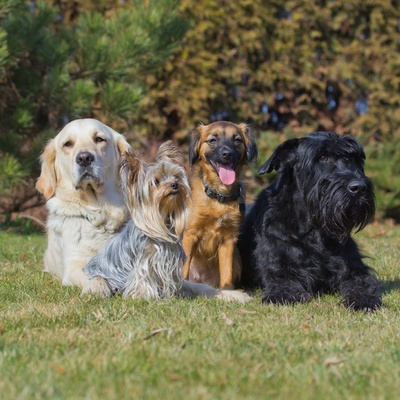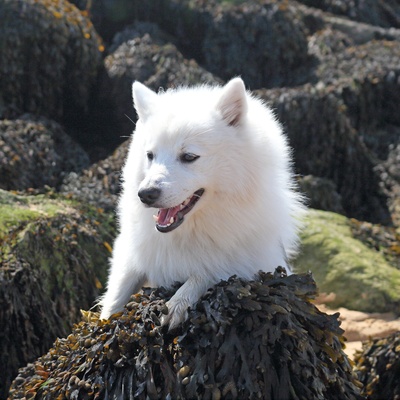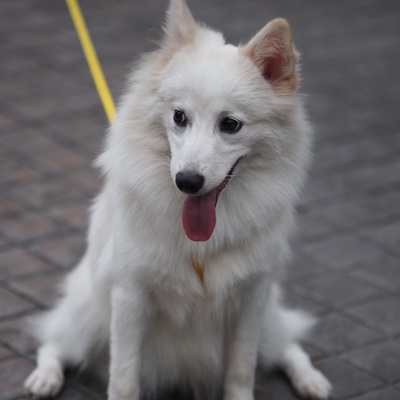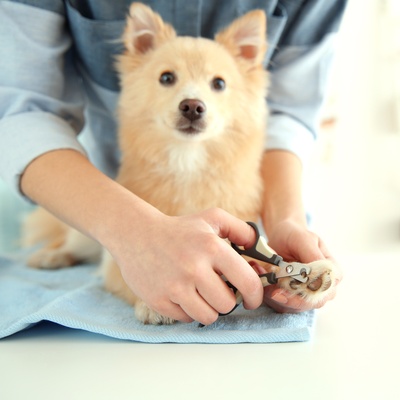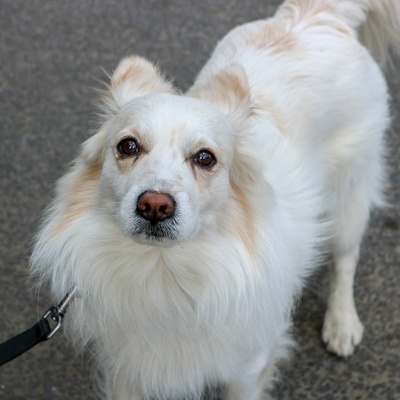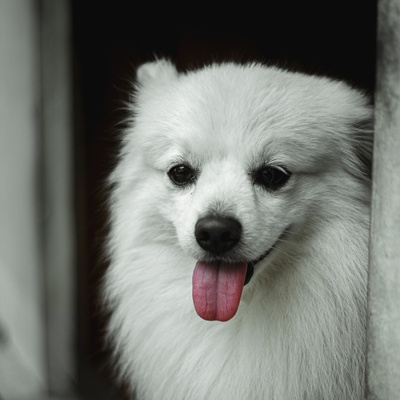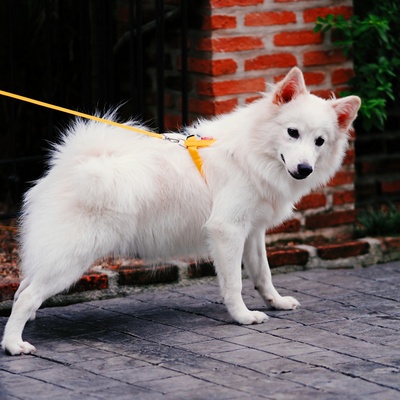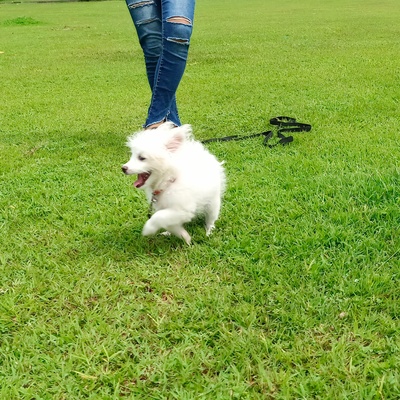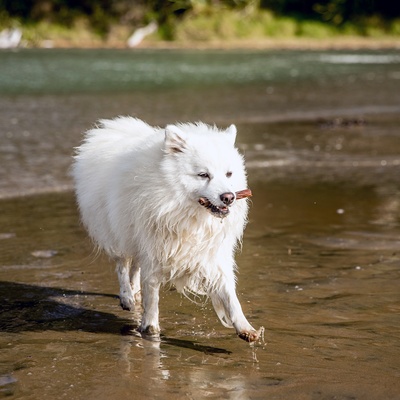Introducing the Japanese Spitz
Discover all there is to know about the Japanese Spitz: its characteristics, behavior, training, and its cost.
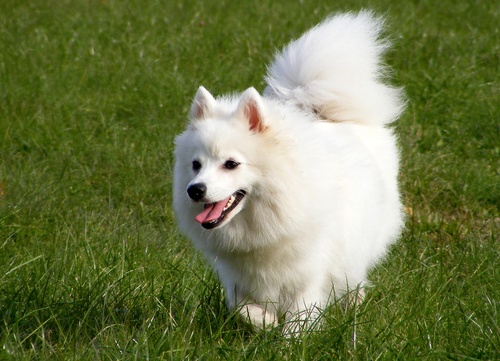
Discover all there is to know about the Japanese Spitz: its characteristics, behavior, training, and its cost.
The Japanese Spitz, bred in Japan from various white German Spitz dogs, is a beloved breed worldwide. Known for their bravery, intelligence, and adaptability, they excel as loyal companions and vigilant watch-dogs. These affectionate and sociable dogs thrive on interaction, making them ideal family pets, especially good with children. With their fluffy white coats and lively personalities, Japanese Spitz dogs bring joy and companionship to homes around the world.
This section outlines the unique features of the Japanese Spitz.
The Japanese Spitz belongs to the Non-Sporting Group. This group includes a diverse range of dogs not specifically bred for sporting or working purposes, such as Dalmatians and Poodles. Japanese Spitz dogs are known for their friendly and adaptable temperament.
The Japanese Spitz is a small to medium-sized dog. They typically stand between 12 to 15 inches at the withers and weigh between 11 to 20 pounds.
Japanese Spitz dogs have a medium-length, double coat. Their fur is dense and fluffy, providing excellent protection from the elements.
The Japanese Spitz has a pure white coat. This uniform color adds to their striking and elegant appearance.
Japanese Spitz dogs adapt well to various living environments, including apartments and houses with yards. They thrive in homes where they receive plenty of attention and exercise.
Japanese Spitz dogs are very friendly and sociable. They are excellent with children and generally get along well with other pets, making them great family companions.
Japanese Spitz dogs are generally healthy. However, they can be predisposed to allergies and joint issues, so regular veterinary care is important.
The Japanese Spitz is known for its intelligent and eager-to-please nature. They are relatively easy to train with patience and positive reinforcement, responding well to kind and consistent handling.
We can help!
Every dog has its own character, and so do you. Making the right choice will ensure his well-being and yours.
Take our quiz to find out which breed is right for you, based on your personality, lifestyle, location and many other criteria.
Don't wait any longer and take the quiz to find out the answer!
The Japanese Spitz is a small to medium-sized dog, known for its well-balanced and elegant appearance. With a pure white, fluffy coat and a cheerful expression, this breed is a delight for any dog lover!
The Japanese Spitz is relatively small. Females typically measure between 12 and 14 inches, while males can reach up to 15 inches at the withers.
In terms of weight, female Japanese Spitz dogs usually weigh between 11 and 17 pounds, while males weigh between 13 and 20 pounds.
Japanese Spitz puppies grow relatively quickly. By six months, they reach around 70-80% of their adult weight. They typically reach their final size and weight by the age of one year.
The Japanese Spitz has a medium-length, double coat that is dense and fluffy. Their fur is straight and smooth with no waves or curls, creating a plush and voluminous appearance. The undercoat is thick and soft, providing excellent insulation.
The coat color of the Japanese Spitz is uniformly pure white, which is a hallmark of the breed. This single color standard enhances their elegant and striking appearance.
The Japanese Spitz's coat requires regular maintenance. They shed year-round, with increased shedding during spring and autumn. Daily brushing is recommended to remove loose fur and prevent matting. Despite their thick fur, a bath every three to four months is sufficient, as they have a self-cleaning coat.
The Japanese Spitz is a balanced, well-proportioned dog. Their head is wedge-shaped with a slightly rounded forehead and a well-defined muzzle. The eyes are dark, almond-shaped, and expressive, giving them a lively and intelligent appearance. The ears are small, triangular, and erect, positioned high on the head. Their body is compact and sturdy, with a level back and well-developed musculature, contributing to their agile and graceful movement.
The Japanese Spitz is loyal, affectionate, and protective, making them easy to live with and excellent companions.
There are currently around 400 breeds of dog, divided into 10 groups. The Japanese Spitz belongs to the Non-Sporting Group, which includes diverse breeds like the Dalmatian, Bulldog, and Poodle. These breeds are known for their intelligence and adaptability. Japanese Spitz dogs are particularly noted for their developed instincts, remarkable intelligence, and gentle, affectionate nature, making them excellent family pets.
Japanese Spitz dogs are known for their friendly and affectionate nature. They form strong bonds with their owners and are incredibly loyal. These dogs thrive on attention and love to show affection. A present and attentive owner is essential for their emotional well-being, as they need consistent interaction to develop properly.
The Japanese Spitz is a very sociable and generous breed. They get along well with people and are comfortable around strangers. This breed is an excellent companion for children, thanks to their gentle and tolerant nature. It's important to work on their sociability from a young age to ensure they grow up to be well-adjusted and friendly adults.
Take the test and find out the dog breed that matches your personality and lifestyle.
The Japanese Spitz can adapt to various living situations, whether in apartments, houses, urban, or rural environments. They thrive with attentive owners who can provide them with the love and interaction they need. It's important to take them for at least two walks a day, each lasting around 30 minutes, to keep them happy and healthy.
While highly adaptable, the Japanese Spitz enjoys having access to an outdoor environment where they can satisfy their curiosity and expend energy. A safe outdoor space allows them to explore and play, ensuring they remain well-exercised and mentally stimulated.
The Japanese Spitz is an intelligent and eager-to-learn breed. They quickly grasp commands and respond well to positive reinforcement techniques. Training should focus on communication, patience, and rewards. Given their curious nature, equipping them with a GPS collar can help prevent losses or escapes.
Japanese Spitz dogs are known for their attentive and responsive nature. They excel in obedience training and enjoy learning new tasks. Early socialization and consistent training are key to developing their full potential. With their superior intelligence and willingness to please, Japanese Spitz dogs make delightful and cooperative companions.
The Japanese Spitz is generally a healthy breed. Daily care is essential to prevent diseases and infections, ensuring they remain in optimal health. Regular grooming, a balanced diet, and routine veterinary check-ups are crucial for maintaining their well-being.
Japanese Spitz dogs are typically robust and healthy, with few breed-specific health issues. However, they can be prone to certain conditions like patellar luxation, dental problems, and allergies. Patellar luxation involves the dislocation of the kneecap, which can cause discomfort and mobility issues. Dental problems can lead to gum disease and tooth loss if not addressed. Allergies may cause itching and skin irritations. The average lifespan of a Japanese Spitz is between 12 and 16 years.
Routine care is vital for the health of your Japanese Spitz. Regular veterinary check-ups ensure they receive necessary vaccinations, deworming, and parasite treatments. Daily care includes brushing their coat to prevent matting and reduce shedding, cleaning their ears to prevent infections, maintaining dental hygiene to prevent tartar build-up, and trimming their nails to avoid overgrowth and injuries. While the Japanese Spitz is not a hypoallergenic breed, being aware of potential allergies and consulting a vet for appropriate recommendations is important.
Like all dogs, the Japanese Spitz has specific nutritional needs. A balanced diet is essential for maintaining their vitality and strength. High-quality proteins and vitamins are crucial components of their diet to meet their nutritional requirements.
We recommend feeding your Japanese Spitz premium kibble designed for their breed, as it provides a balanced dietary foundation. If additional protein is needed, you can supplement their diet with lean white and red meat, but be sure to limit fats to avoid health issues. A consistent feeding schedule will help maintain their overall health and well-being.
The Japanese Spitz is a well-regarded breed with several breeders available. It's important to consider several factors before adopting.
Before adopting a Japanese Spitz, there are some important points to consider. First and foremost, you need to check that the breeder is reputable. This means visiting the breeder's premises to assess the living conditions and behavior of the dogs. Responsible breeders will provide transparent information about the puppy's health and any genetic illnesses in its lineage.
Lastly, mandatory electronic identification, like microchipping, is not always mandated at the federal level in the United States for cats and dogs. But microchipping is widely acknowledged as a successful way to permanently identify pets and increase the possibility of reuniting lost pets with their owners, even in the absence of universal regulations. As a pet owner, it is advised to inform yourself about municipal laws to ensure the safety and wellbeing of your pet.
The cost of acquiring a Japanese Spitz can vary based on several factors, such as lineage, pedigree, the reputation of the breeder, and the age of the dog. Japanese Spitz puppies typically cost between
and
.
In addition to the initial purchase price, maintaining a Japanese Spitz involves ongoing costs, including veterinary fees, food, grooming, and other essentials. The annual expense for caring for a Japanese Spitz is approximately
to
Choosing a dog that matches your personality and lifestyle will ensure your well-being and his!
